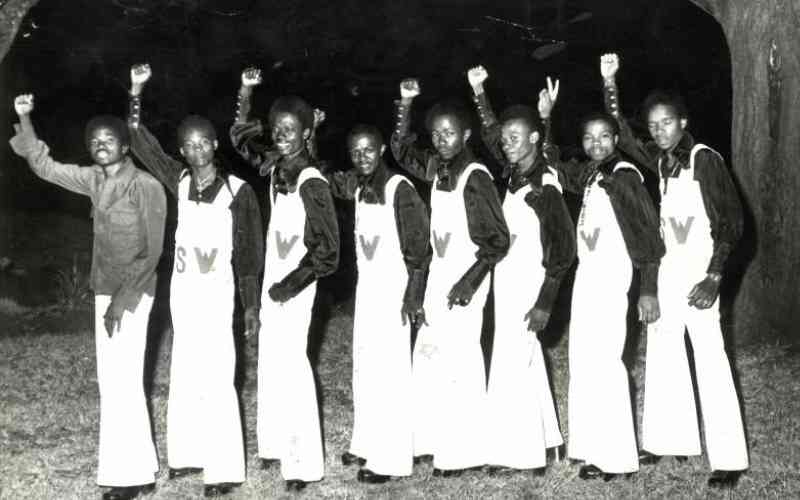×
The Standard e-Paper
Smart Minds Choose Us

It is evening in Nakuru, and the hits of the 1970s and 1980s of the once-famous Simba Wanyika Band, which ruled East and Central Africa are still popular in many urban joints.
In their heydays, Simba Wanyika could only be rated in the class of DDC Mlimani Park Orchestra of Dar Es Salaam, Tanzania.